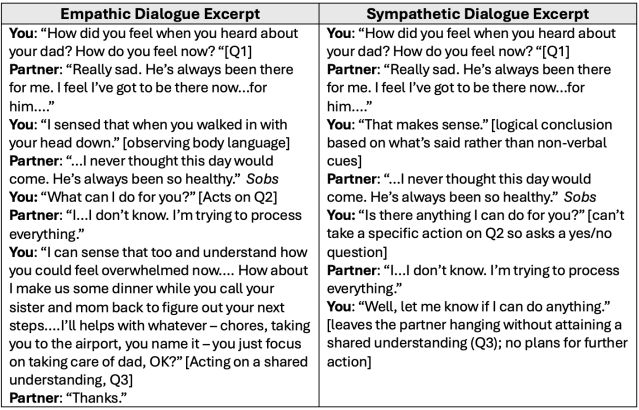“It is I who come to your door,” said the man,
“Go away, not now, this isn’t the time,
No place exists here for the raw.”
So the wretched friend left from the door,
and traveled afar for a year, his mind and heart
Were burned by the world,
till eventually he came once more.
And again he knocked at the door of his friend,
His heart in his mouth with fear.
“Who’s there at my door?” his friend asked.
“Is it you, my closest of hearts?”
“No, it’s you at the door, not I anymore.”
“Then come inside my house, fore here I can tell,
There’s little or no room for two.”
– Rumi (1273/2000, p. 59)

It is sometimes hard to open doors in any relationship. Our job is to keep trying.
Source: Annie Spratt / Unsplash
As Rumi’s epigraph alludes to above, relationships don’t do well with selfishness. When one partner focuses on himself more than the other, the relationship becomes unhealthy because the levels of communication and connection suffer. In this post, we’ll examine the nature of empathy as a critical element of any relationship by defining it in a relational context and then assessing its significance by applying it to a scenario.
What is empathy?
Empathy involves understanding another person’s experiences in a psychological and emotional way (Stein, 1916/1989). It extends beyond sympathy (Greek: with pathos or experience/suffering) which implies merely feeling another’s suffering. Put another way, an empathic partner attempts to put oneself in the other’s proverbial shoes. If one cannot think of anyone but oneself, such as Rumi’s predicament above, there is no real relationship.
Edith Stein (1891-1942), a pioneer in phenomenology, sought to understand the empirical essence of empathy and what made it unique to human nature. Distilling her analysis into three levels, one could say that understanding empathy entails asking three questions that can help partners better see themselves and their relationships:
(Q1) What is my partner experiencing or what have they experienced? (learned via observation and listening)
(Q2) How do I perceive that experience now? (sympathy)
(Q3) What will we do about this shared understanding of the experience (after talking about it)? (empathy entails follow through with action)
If we apply this model to our relationships, it can help clarify the role of empathy in coping with challenges.
Why is empathy significant for relationships?
Empathy is significant for relationships because it can provide insight into the psychological nature of our loved ones, especially during crises. If we approach our partner (and ourselves) with compassion, we can learn to grow our relationship as friends rather than as adversaries (Culkin, 2023; Kirmayer, 2021). In a previous post (2023), I discussed how self-compassion can strengthen mindfulness, trust, and kindness – key ingredients for any constructive relationship.
Suppose your partner comes home one evening looking down and depressed. She mentions her sister called this afternoon and reported that her dad is in the hospital with a terminal illness and doesn’t have long to live. The conversation could go in various directions, but let’s analyze it from an empathic standpoint on the one hand and a non-empathic (perhaps merely sympathetic) perspective on the other:

Empathy in a conversation.
Source: David Culkin
Conclusion
We examined the nature of empathy as a critical element of any relationship by defining it and applying the concept to a fictitious scenario to demonstrate how omnipresent it is in our lives. Empathy is a powerful tool in our relationship toolbox, if we choose to use it.

